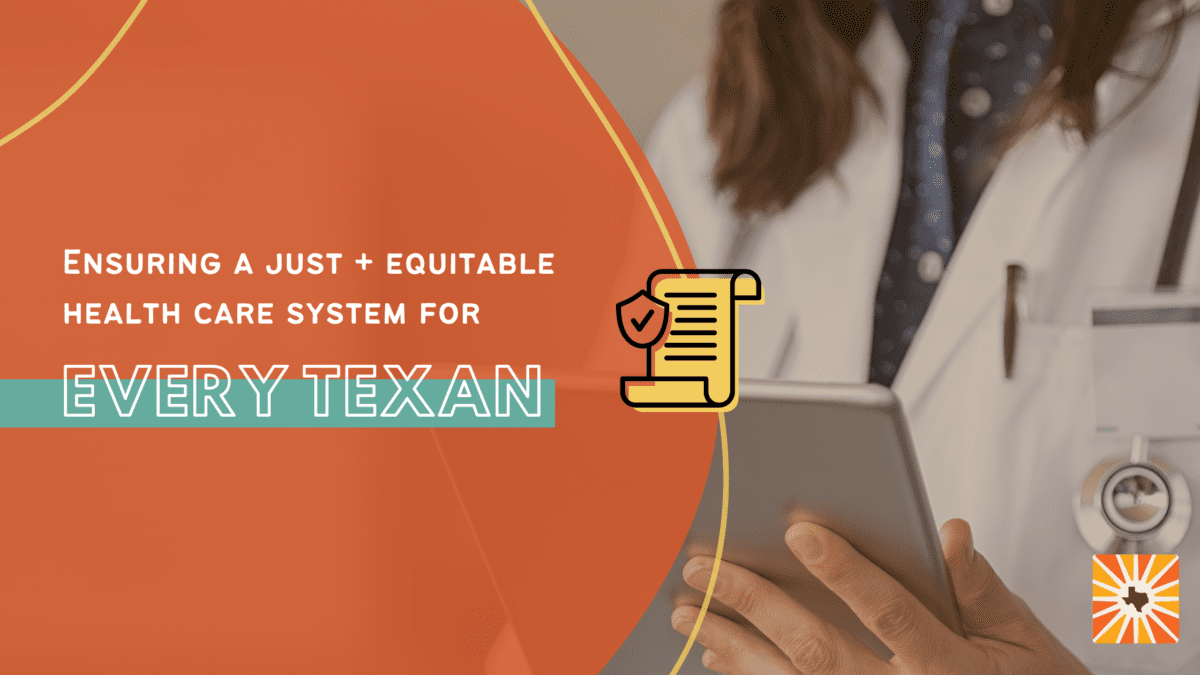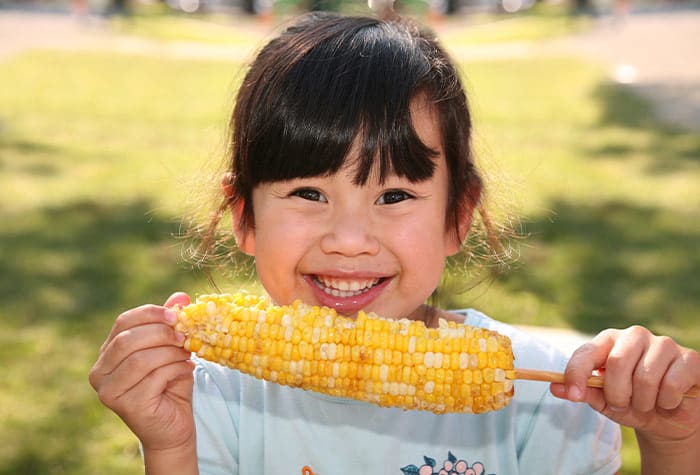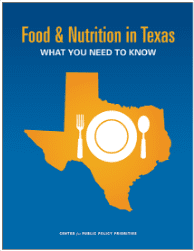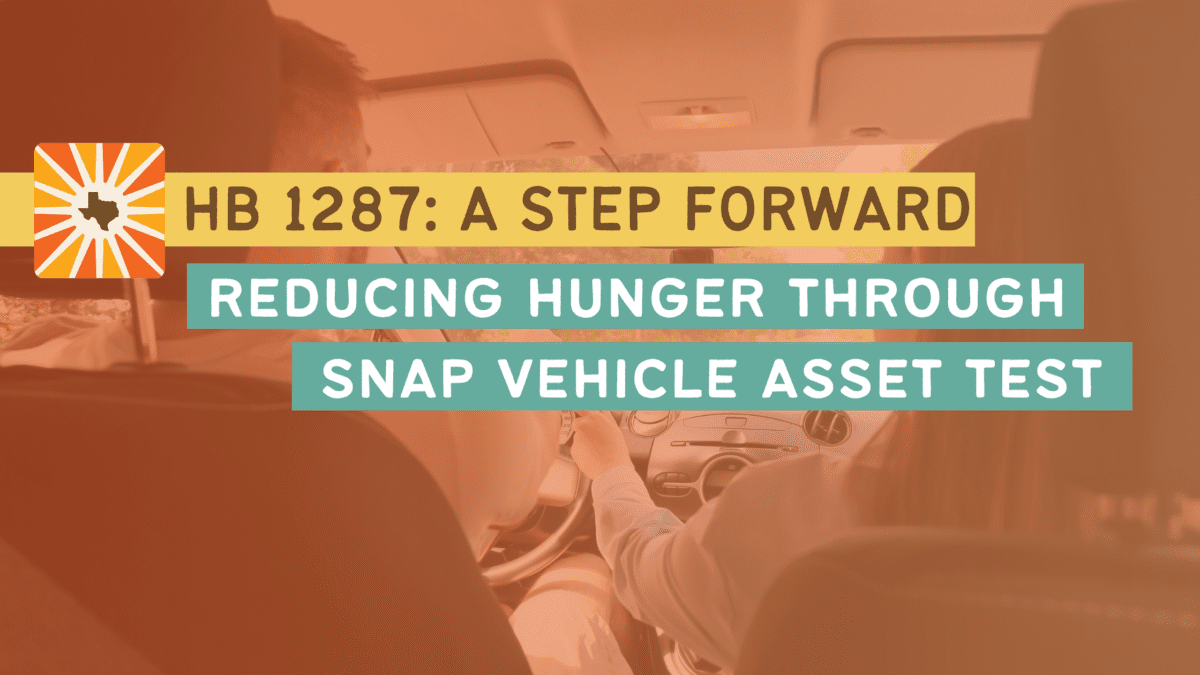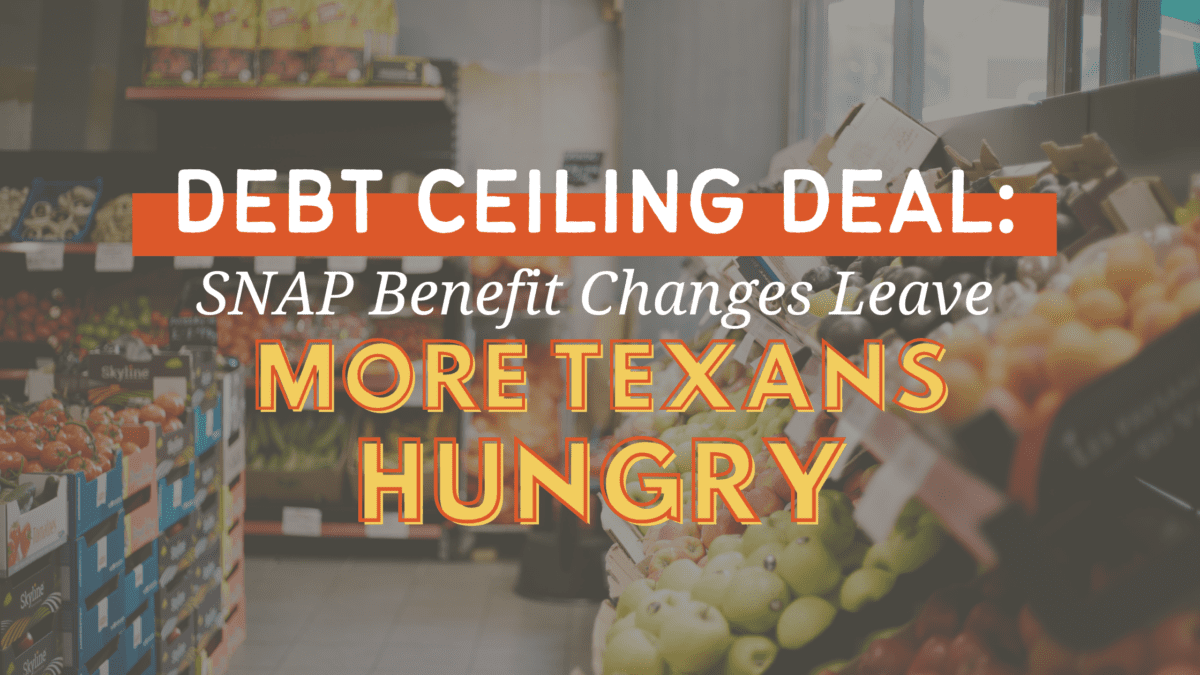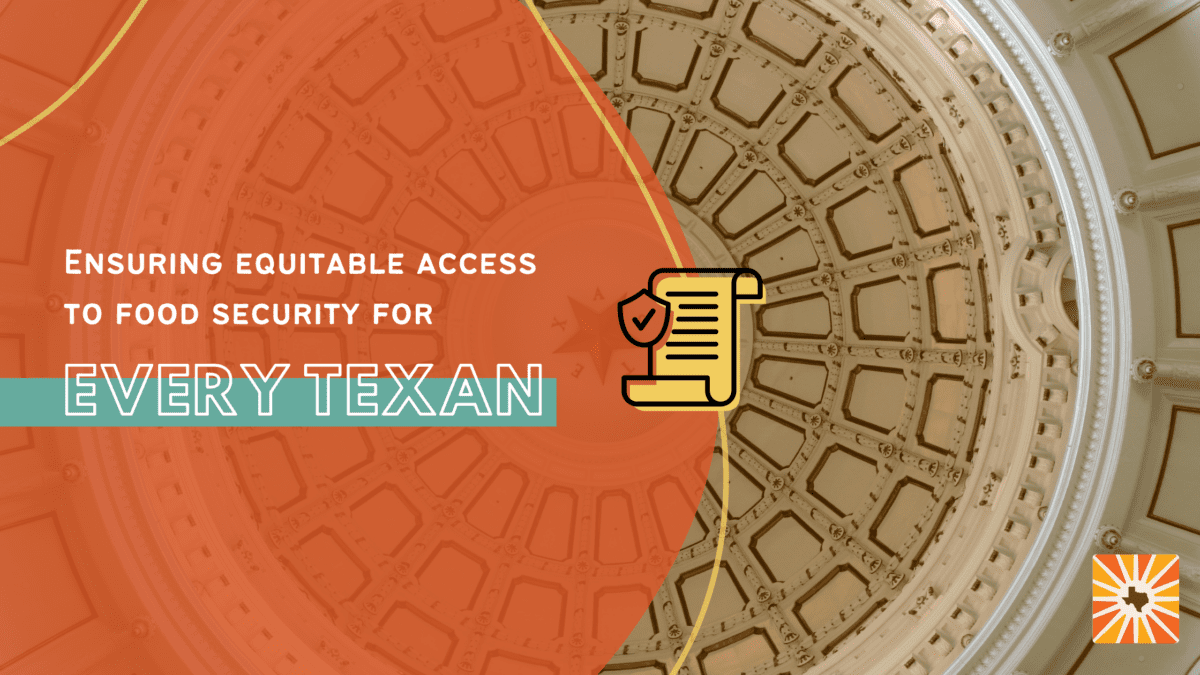Kids, the elderly, people with disabilities, veterans, and workers who don’t earn enough to feed their families turn to SNAP to help buy food every month. It is the nation’s most effective anti-hunger program.
SNAP counters the struggles of hard-working families by providing them with funds to purchase food and pay for basic needs. SNAP acts as a buffer against hunger for low-income working families, seniors, and people with disabilities by supplementing food budgets and making it possible for low-income Texans to buy the food they need.
SNAP serves a broad cross-section of low-income Texans. Generally, households with incomes below 165 percent of the Federal Poverty Level are eligible for SNAP if they also meet the program’s rules on citizenship status, asset limits and work requirements.
Of the working-age adults who receive SNAP, the vast majority live in households with children. Adults without children can receive SNAP for only three months within a three-year period unless they are disabled, elderly, pregnant or working.
Texans who use SNAP benefits receive them monthly on the Lone Star Card, an Electronic Benefits Transfer (EBT) card. SNAP benefits can be used only on food items like fruits and vegetables, flour, meat, fish and dairy products at supermarkets, grocery stores, convenience stores and farmers’ markets. The dollar amount of someone’s SNAP benefit varies according to family size and income. However, it is not adjusted for local differences in cost of living.
SNAP financially benefits low-income Texans by supporting food purchases and freeing up scarce cash resources for other basic needs, such as rent. SNAP benefits help many working families make ends meet on low incomes. Businesses across the state also benefit from the SNAP funds Texans spend in grocery stories.
While the federal government fully funds SNAP benefits via the U.S. Department of Agriculture, the federal and state governments share the administrative costs. Texas’ Health and Human Services Commission administers SNAP. To fulfill SNAP’s goal of preventing hunger in Texas, HHSC is charged with making accurate eligibility determinations, issuing payments, overseeing participating retailers and preventing fraud.
A state’s participation rate is tied to the flexibility it has to modify eligibility rules when administering SNAP. Only 7 out of 10 eligible Texans are enrolled in SNAP, one of the lowest rates of participation in the country, as the state adds unnecessary barriers to participating.
